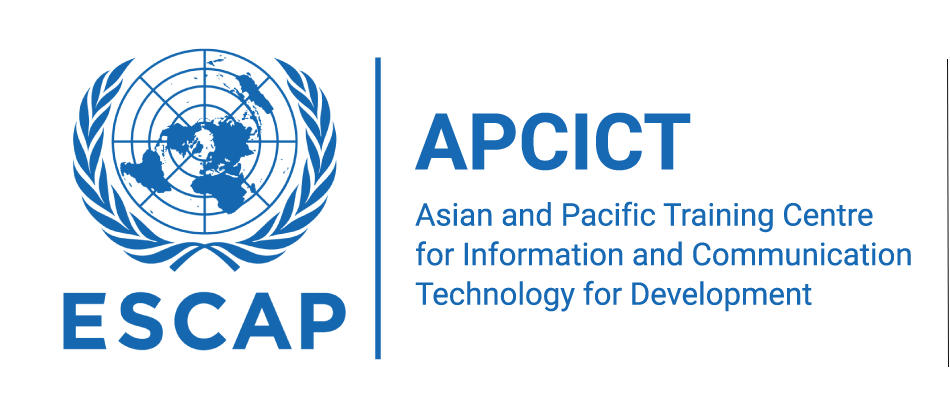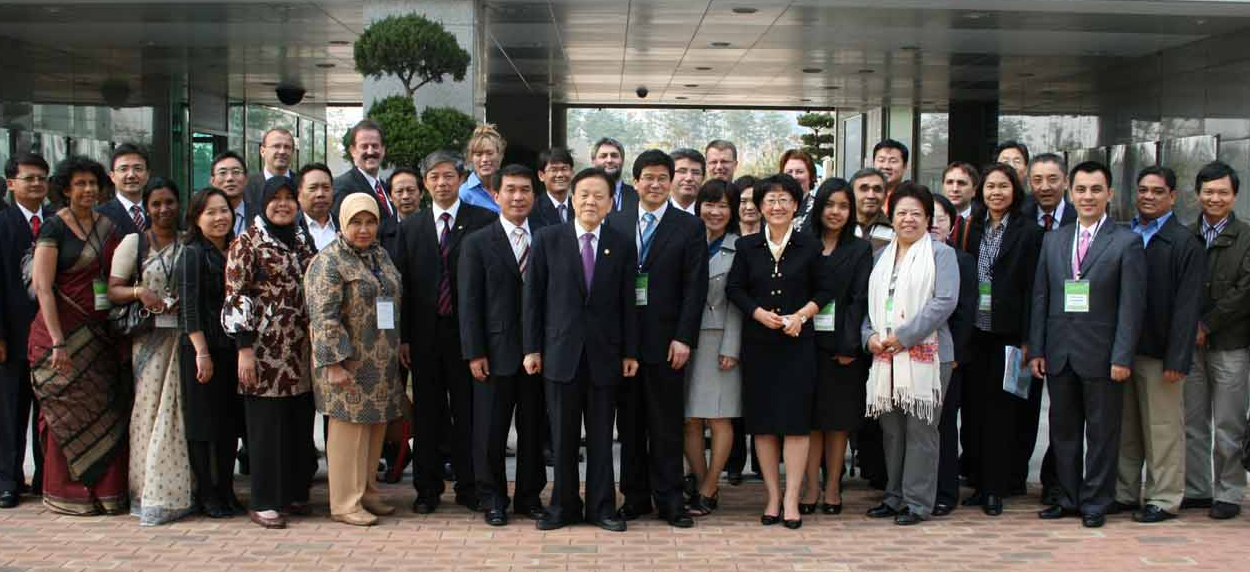The Second Regional Workshop on the Enhancement of ICT Accessibility for Persons with Disabilities took place in Incheon, Republic of Korea on 13-15 October 2009. The workshop was jointly organized by APCICT, ESCAP’s Social Development Division and the National Information Society Agency. There were about 40 government officials and 10 resource persons participating in the workshop.
15 October 2009
Press Release No: G/66/2009
Bangkok (UN/ESCAP Information Services) - A United Nations meeting has recommended new guidelines for easing access to information and communication technology (ICT) by the 400 million persons with disabilities (PWDs) in the Asia-Pacific region.
“ICTs, when used effectively, have the potential to empower PWDs to lead active, independent and productive lives,” said Hyeun-Suk Rhee, Director of the Asian and Pacific Training Centre for Information and Communication Technology for Development (APCICT), a regional institution of the Economic and Social Commission for Asia and the Pacific (ESCAP) and co-organizer of the three-day workshop which concluded today.
The APCICT teamed with ESCAP’s Social Development Division and the National Information Society Agency of the Republic of Korea to support its members in making ICT accessible to PWDs by offering training to policymakers from Cambodia, China, Indonesia, Kyrgyzstan, Mongolia, Philippines, Sri Lanka, Thailand, Turkey, Uzbekistan and Viet Nam.
The government representatives were joined at the “Second Regional Workshop on the Enhancement of ICT Accessibility for Persons with Disabilities (PWDs)” by ICT accessibility experts from the International Telecommunication Union (ITU), Australia, European Union, Italy, Republic of Korea, United Kingdom and United States.
The goal of the workshop was to train policymakers and stakeholders in enhancing ICT accessibility for PWDs and enrich the policy guidelines that members can use when they develop implementation strategies in the countries.
“Nowadays it is taken for granted that ICT such as the Internet and mobile phone is a fundamental environment for all people even in managing daily lives as well as in employment and education. However it could be a huge challenge for PWDs,” Aiko Akiyama of ESCAP told the workshop.
For inclusive development, ICT needs to be accessible to vulnerable people including PWDs. The United Nations Convention on the Rights of Persons with Disabilities (CRPD), which entered into force in May 2008, clearly stipulates, among other things, the right of PWDs to access ICT.
The workshop reviewed international mandates such as the CRPD, examined the various tools and guidelines available for policymakers, such as the ITU policy toolkit, and was an opportunity to share good examples from Australia, the EU and the Republic of Korea. Participants also looked at good practices in various policy sectors including education, employment, procurement, increasing affordability and availability of ICT products and services, and awareness-raising and advocacy.



